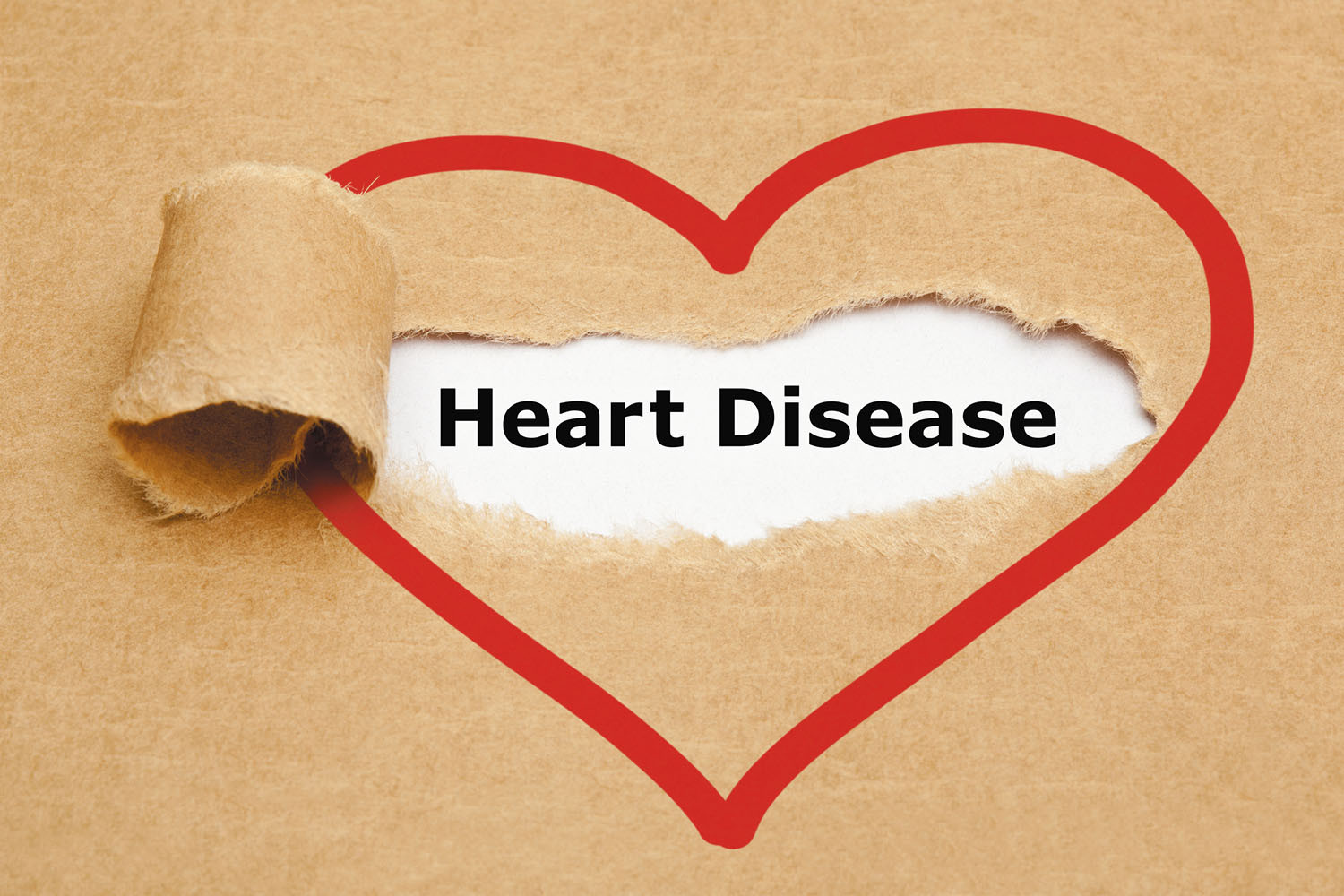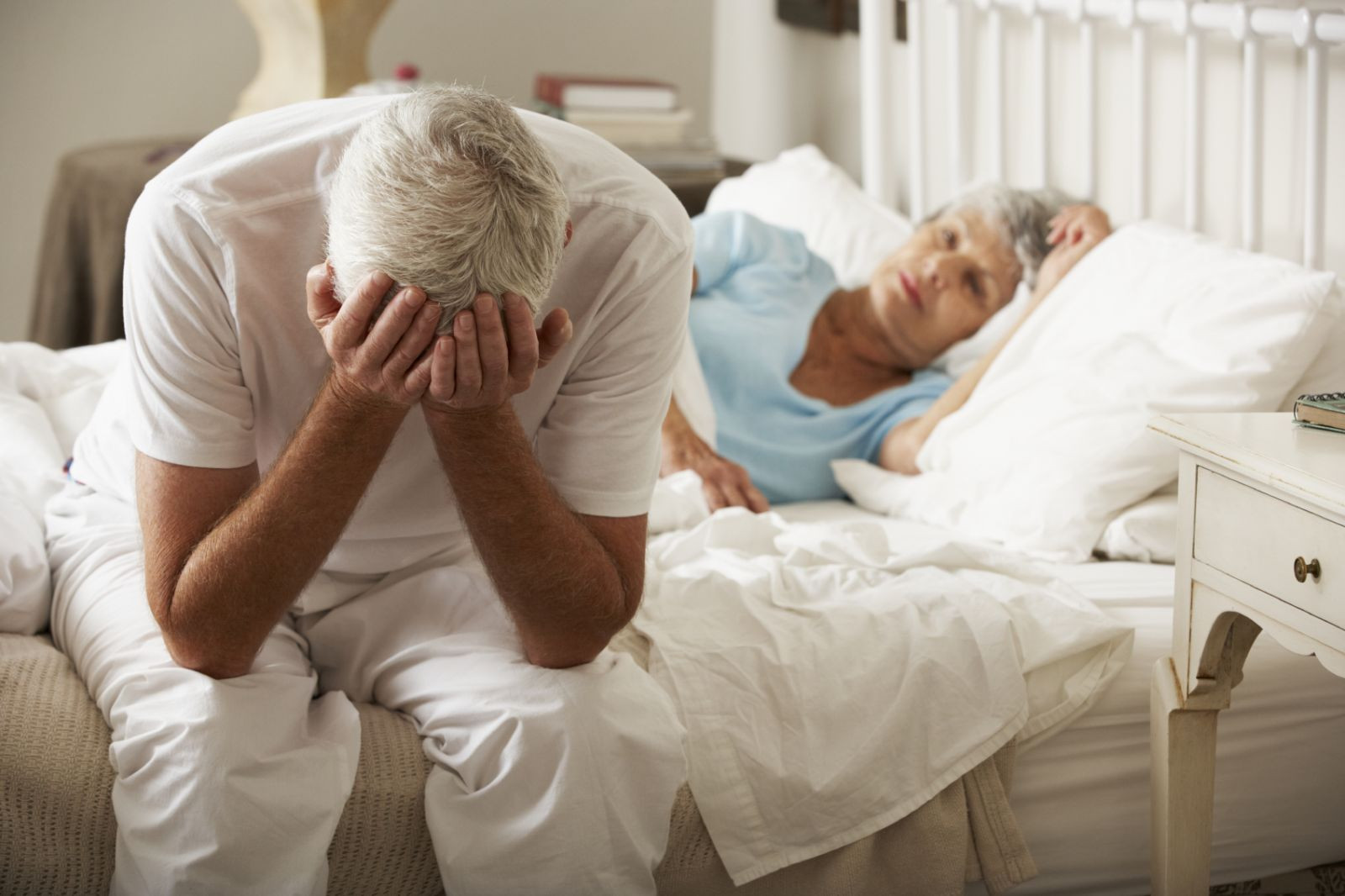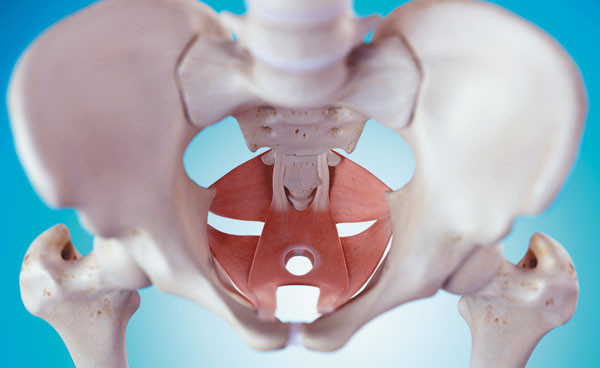Recent Blog Articles

Testosterone-blocking drugs boost heart disease risk when given in combination

Parenting isn't easy: Two important skills can help

Does sleeping with an eye mask improve learning and alertness?

Do tattoos cause lymphoma?

Hot weather hikes: Staying safe when temperatures spike

Cannabis drinks: How do they compare to alcohol?

What is Lewy body dementia?

Dog bites: How to prevent or treat them

Ever read your medical record? Here's why you should

Shining light on night blindness
Men's Sexual Health Archive
Articles
Finding hidden risk for heart disease
These conditions are associated with a higher risk.
Image: © IvelinRadkov/Getty Images
Most men are familiar with the common strategies to reduce their heart disease risk: keep cholesterol in check, manage high blood pressure, follow a heart-healthy diet, and perform regular exercise. But there may be other preventive steps you can take.
"Some age-related conditions can further increase your risk without you knowing it, which is why it's important to be mindful about all aspects of your health," says Dr. Michael Gavin, a cardiologist with Harvard-affiliated Beth Israel Deaconess Medical Center. "Fortunately, once they are recognized, these other risk factors can be addressed and managed."
Straight talk about your sex life
Although many older men enjoy active sex lives, most don't share sex-related questions and concerns with their doctor.
Image: © bernardbodo/Getty Images
While you discuss many subjects with your doctor, like proper blood pressure and cholesterol levels, your sex life probably doesn't make the list — but it should.
"Even though you may have an aging body, you can still feel healthy, vigorous, and full of life, and your sex life should be part of that," says Dr. Sharon Bober, director of the Sexual Health Program at Harvard-affiliated Dana-Farber Cancer Institute.
Yoga lessens treatment-related symptoms in men with prostate cancer
Decades of research show that yoga can reduce the emotional and physical fatigue brought on by cancer treatment. In 2017, scientists reported for the first time that this is also true specifically for men undergoing treatment for prostate cancer. Men who took a yoga class twice a week during prostate cancer radiation treatment reported less fatigue, fewer sexual side effects, and better urinary functioning than men who did not.
The research team enrolled 50 men ages 53 to 85 who were diagnosed with early or advanced nonmetastatic prostate cancer. Of them, 22 were assigned to yoga classes and the rest did not participate in yoga. All the men received scheduled radiation treatments; 29 of them were also on hormonal therapy, and 19 had been treated previ-ously with surgery. The yoga and control groups were evenly balanced with respect to various cancer treatments as well as treatments for side effects.
High-dose, shorter radiation therapy effective for some prostate cancer
In the journals
Men with intermediate-risk prostate cancer may benefit more from a shorter duration of hypofractionated radiation therapy (HRT) than from standard radiation therapy. With both types of radiation therapy, the total amount of radiation is given in multiple sessions over a set period. Compared with standard radiation therapy, HRT uses larger doses over a shorter period of time.
A study in the Nov. 4, 2017, European Urology Focus analyzed data of 3,553 men with prostate cancer, 65% of whom had intermediate-risk prostate cancer. The men were randomized to get either a one-month program of HRT or the standard radiation treatment regimen given over two months. After an average of five to six years, the intermediate-risk men who had HRT were less likely than men who got standard radiation therapy to have their prostate cancer return.
Sexually transmitted disease? At my age?
There's an upswing in cases of chlamydia, gonorrhea, and syphilis in the United States, and it includes older adults.
For as long as humans have engaged in sex, there have been sexually transmitted diseases (STDs). The term STD (which has replaced the older "venereal disease") generally refers to infections that can be transmitted by vaginal, anal, or oral sex. Among them are genital herpes, human papillomavirus, chlamydia, gonorrhea, syphilis, and human immunodeficiency virus (HIV). The CDC estimates there are about 20 million new STD cases every year, but only a fraction of them get reported.
STDs are on the rise in people of all ages. There were more than two million reported cases of chlamydia, gonorrhea, and syphilis in 2016. While the vast majority occurred in teenagers and young adults, there also were significant increases in cases among middle-aged and older adults (see "STDs reported among older adults").
Men may want to rethink surgery for early-stage prostate cancer
In the journals
Observation only may be the best medicine for men with early-stage prostate cancer, suggests a 20-year study published online July 13, 2017, by The New England Journal of Medicine. Early-stage prostate cancer means the cancer is small, confined to the prostate gland, and can only be detected with a biopsy.
Researchers randomly assigned 731 men, average age 67, with localized prostate cancer to receive either surgery or observation only. At the 20-year follow-up, 62% of the men who had prostate cancer surgery had died of other causes, while only 7% died from prostate cancer. In comparison, 67% of the men assigned to observation died from other causes and 11% from prostate cancer. The absolute differences in mortality were not significant.
4 things you should know about erectile dysfunction
Erectile dysfunction (ED), once shrouded in secrecy, is now in the spotlight, thanks to high-profile advertisements for drugs like Cialis, Viagra, Levitra, and Stendra. But despite this greater awareness of ED, many men — and women — don't really know much about this condition. Here are four things to know about ED.
- ED is often the result of diseases or conditions that become more common with age. It can also be a side effect of the medications used to treat them. Other possible causes of ED include prostate surgery, stress, relationship problems, and depression.
- Other age-related factors besides disease can also affect a man's ability to have an erection — for example, with age, tissues become less elastic and nerve communication slows. But even these factors don't explain many cases of ED.
- Cardiovascular disease is a common cause of ED. Clogged arteries (atherosclerosis) affect not only the blood vessels of the heart, but those throughout the body as well. In fact, in up to 30% of men who see their doctors about ED, the condition is the first hint that they have cardiovascular disease.
- Intriguing findings from the Massachusetts Male Aging Study suggest there may be a natural ebb and flow to ED — that is, for some men, trouble with erections may occur, last for a significant amount of time, and then partly or fully disappear without treatment.
Regardless of the cause, ED often can be effectively addressed. For some men, simply losing weight and exercising more may help. Others may need medications, and there are other options available as well. Given the variety of therapies available, the possibility of finding the right solution is greater than ever.
Kegels: Not for women only
Women use kegels to strengthen their pelvic floor muscles, but men may also benefit from doing these exercises.
Image: © Eraxion /Thinkstock
Kegel exercises to strengthen pelvic floor muscles have long been seen as just for women, but they may be a way for men to address some common unpleasant issues as they age.
"Men also can have issues with these muscles, which can cause urinary leakage, bowel trouble, and even erection problems," says physical therapist Celia Brunette, with Harvard-affiliated Spaulding Rehabilitation Center.
When You Visit Your Doctor - Benign Prostatic Hyperplasia (BPH)
Benign Prostatic Hyperplasia (BPH), or Enlarged Prostate
Questions to Discuss With Your Doctor:
- Over the past month, how often have you had a sensation of not emptying your bladder completely after you finished urinating?
- Over the past month, how often have you had to urinate again less than two hours after you finished urinating?
- Over the past month, how often have you found you stopped and started again several times when you urinated?
- Over the past month, how often have you found it difficult to postpone urination?
- Over the past month, how often have you had a weak urinary stream?
- Over the past month, how often have you had to push or strain to begin urination?
- Over the past month, how many times did you most typically get up to urinate from the time you went to bed at night until the time you got up in the morning?
- If you were to spend the rest of your life with your urinary condition just the way it is now, how would you feel about that?
- Have you had blood in your urine, or urinary tract infections?
- Have you ever had surgery on your prostate, bladder, or kidneys?
- Do you have gastrointestinal problems such as diverticulitis or constipation?
- Do you have diabetes?
- Does anyone in your family have diabetes?
- Have you been unusually thirsty or had unintentional weight loss?
- Have you ever had a stroke or nervous system disease?
- Have you ever had a back injury or back surgery?
- What medications are you taking (prescription and over-the-counter)?
- What do you know about medical and surgical treatment options used in the treatment of benign prostatic enlargement?
- Do you know the side effects that can occur with medications?
- Do you know the complications associated with surgery?
- Do you know how much benefit you can expect from each type of treatment?
- Do you know the risks of waiting, and doing nothing at all?
Your Doctor Might Examine the Following Body Structures or Functions:
- Abdominal examination
- Neurological examination
- Digital rectal examination
- Genital examination
Your Doctor Might Order the Following Lab Test or Studies:
- Urinalysis (for glucose, red blood cells, white blood cells, and bacteria)
- Blood tests (for kidney function and prostate-specific antigen or PSA)
- Cystoscopy
- Ultrasound of the bladder after you urinate (post void residual)
- Ultrasound of the kidneys
- Pelvic CT scan
When You Visit Your Doctor - Erectile Dysfunction or Impotence
Erectile Dysfunction or Impotence
Questions to Discuss with Your Doctor:
- Do you smoke cigarettes?
- Have you been screened for other medical problems such as high cholesterol, high blood pressure, heart disease, and diabetes?
- Do you exercise regularly? How much? How often?
- Do you have a neurologic disease or sickle-cell disease?
- Are you taking any medications (prescription or over-the-counter)?
- Has your erectile dysfunction worsened since starting any new medications?
- What effect is your erectile dysfunction having on your relationship? Your self-esteem?
- How long have you had erectile problems?
- Do you have erectile problems sometimes or all of the time?
- Have you ever had any psychologically stressful sexual experiences?
- Are you less interested in sex (diminished libido)?
- Are you having difficulty achieving an erection or sustaining it?
- Do you ever awaken with early morning or nocturnal erections?
- Do you have pain with erections?
- Penile bumps or lumps?
- History of penile trauma?
- History of pelvic surgery?
- What are your goals in receiving treatment?
- What therapies have you tried?
- Do you know how much benefit you can expect from medical therapies?
- Do you know the side effects and important drug interactions?
Your Doctor Might Examine the Following Body Structures or Functions:
- Genital examination
- Rectal examination
- Pulses in the groin and feet
- Neurologic examination
Your Doctor Might Order the Following Lab Tests or Studies:
- Blood tests (complete blood count or CBC, glucose, cholesterol panels, thyroid function tests, prolactin level)
- Blood testosterone level (if libido is decreased)
- Nocturnal penile tumescence (NPT)
- Neurologic testing (nerve condition studies)
- Your doctor may decide to do some vascular tests to establish whether the arteries that supply blood to the penis during erections are narrowed.
Recent Blog Articles

Testosterone-blocking drugs boost heart disease risk when given in combination

Parenting isn't easy: Two important skills can help

Does sleeping with an eye mask improve learning and alertness?

Do tattoos cause lymphoma?

Hot weather hikes: Staying safe when temperatures spike

Cannabis drinks: How do they compare to alcohol?

What is Lewy body dementia?

Dog bites: How to prevent or treat them

Ever read your medical record? Here's why you should

Shining light on night blindness
Free Healthbeat Signup
Get the latest in health news delivered to your inbox!
Sign Up








